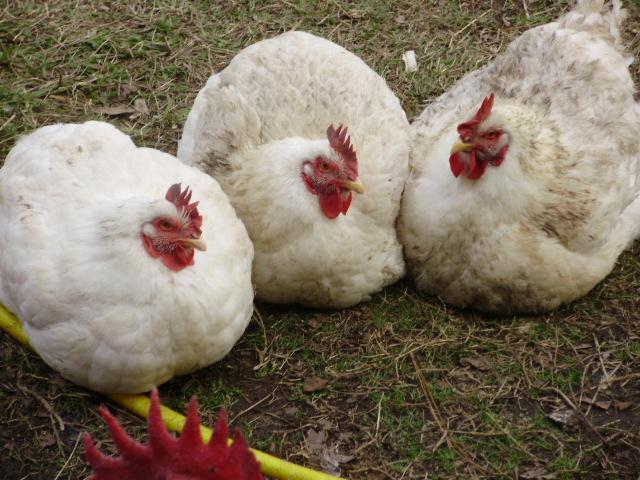We were just discussing this on another thread earlier this morning. I would like to throw in my 2 cents if I may. You will hear many people tell you to do this and do that. Well I am speaking from experience and if others who have actually raised Cornish beyond their life expectancy, please chime in at any time.
I will copy and paste my comments from the other thread. Sorry for the repeat.
Someone who has absolutely no knowledge about chickens "gifted" me with what they thought were "white chickens" 4 years ago. This person was so excited that they had purchased these "white chickens" for me. I asked this person what breed these chickens were and they didn't know. Sooooooooo, as the days went on, I noticed that these little buggars were kinda big and "looked" different". After doing research and calling the feed store where this person purchased these chickens, I was in shock to know that I was caring for Cornish. I was speechless. I knew what they were bred for and I knew that I could not follow through with feeding them to eat them in 6 - 8 weeks.
Raising Cornish as pets is not for everyone. It may not work for everyone, but it worked for me. My girls lay double yolks eggs. I let them free range every day and they eat the same food as the other chickens. I place the feeder a few feet away from them so they have to exercise and walk to get their feed. When I open the chicken yard gates, they come running, like horses at the race track. It is so fun to see them running around like the other chickens.....eating bugs and scratching.
My girls are too big to fly on the roost. I sometimes put them on the roosts, if at coop closing time, their eyes are sparkling with envy to get on the roost. I lift them up and place them on the roost. I have to take them off and place them on the ground the next morning. Sometimes, they just choose to sleep on the ground in their chicken house. I make their ground sleeping arrangements as comfy as possible.
I personally would be very slow at recommending this breed as a "pet". The reason is because it is a careful process that one has to be dedicated to when raising these birds beyond the butcher age. I took my time and studied the breed to find out how I could keep them around longer. Of course there was very little information to no information out there because no one really keeps this breed around a long time. There are a few other people on this forum who have raised Cornish as pets and I am one of them. My girls have an excellent chicken life. Anyone who knows me know that my animals have 5 star status in terms of health, nutrition and living arrangements. I wouldn't have it any other way.
This is what I did.
1. Do not overfeed.
2. Free range as often as possible (daily if you can). Free ranging also promotes exercise. They have to walk and run to get those juicy bugs.
3. Place feeder several feet away from them, so that they have to walk (exercise) to get their food.
4. Feed healthy snacks (fruits & vegetables)
5. Make sure that their living arrangements are functional for their needs. Some cannot fly on roosts at night. They may have to sleep on the floor.
6. Do not place them with roosters. Roosters will try to mate with them. Their legs cannot take the extra rooster weight on them and neither can their stress level.
I can give this information because I have experience in raising Cornish as pets. Please see pic below:
4 year old Cornish (after a very dirty dust bath)





